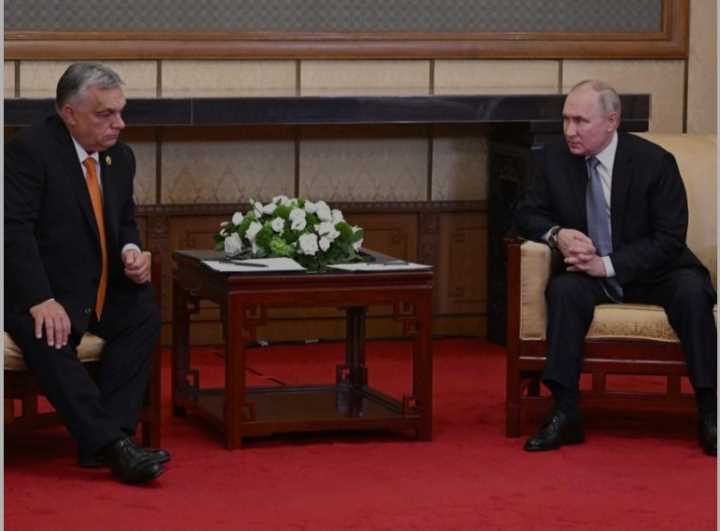
Euractiv.com with AFP
Russian President Vladimir Putin last Thursday hosted Hungary’s Prime Minister Viktor Orbán travelled to Moscow for talks at the Kremlin, described by the Russian president as a “really useful, frank conversation” on the conflict in Ukraine.
A string of EU officials blasted the Hungarian prime minister’s surprise trip, saying it threatened to undermine the 27-member bloc’s stance on the conflict and stressed that he was not representing Brussels.
The pair “talked about the possible ways of resolving” the Ukraine conflict, Putin said in remarks after a bilateral meeting.
The Kremlin leader repeated his demand that Ukraine withdraw all its troops from regions that Moscow has annexed and said Kyiv was “not ready to drop the idea of waging war until a victorious end”.
Putin said at the start of the talks said that he wanted to “discuss the nuances that have developed” over the conflict in Ukraine with Orbán.
Orbán in turn said he had realised “positions are far apart” between the two sides.
“The number of steps needed to end the war and bring about peace is many,” he said.
The visit came days after Hungary took over the EU’s rotating presidency and Putin told Orbán he expected him to outline “the position of European partners” on Ukraine.
The Ukrainian government lambasted the meeting, stressing they had no hand in its planning.
“The decision to make this trip was made by the Hungarian side without any agreement or coordination with Ukraine,” Kyiv’s foreign ministry said in a statement.
No EU mandate
European Union leaders lashed out at Orbán over the trip.
Related Stories
“Appeasement will not stop Putin,” European Commission head Ursula von der Leyen wrote on X.
“Only unity and determination will pave the path to a comprehensive, just and lasting peace in Ukraine.”
EU foreign policy chief Josep Borrell said in a statement that Orbán’s “visit to Moscow takes place, exclusively, in the framework of the bilateral relations between Hungary and Russia”.
“Orbán has not received any mandate from the EU Council to visit Moscow,” he added.
The EU has firmly opposed Russia’s military offensive in Ukraine, imposing 14 rounds of unprecedented sanctions on Moscow.
“That position excludes official contacts between the EU and President Putin. The Hungarian Prime Minister is thus not representing the EU in any form,” Borrell said.
“It is worth recalling that President Putin has been indicted by the International Criminal Court and an arrest warrant released for his role in relation to the forced deportation of children from Ukraine to Russia.”
EU Council chief Charles Michel had earlier reiterated the common stance that “no discussions about Ukraine can take place without Ukraine”.
The White House also criticised the trip as “counterproductive” and the NATO military alliance, of which Hungary is a member, distanced itself.
Orbán’s visit “will not advance the cause of peace and is counterproductive to promoting Ukraine’s sovereignty, territorial integrity and independence,” White House press secretary Karine Jean-Pierre said.
NATO head Jens Stoltenberg said Orbán had informed the alliance of his trip but stressed the Hungarian leader was “not representing NATO at these meetings. He’s representing his own country”.
Kremlin spokesman Dmitry Peskov told Russian state TV the visit had been Orbán’s idea and Russian officials only heard about the trip on Wednesday — a day after Orbán had visited Kyiv.
IN EU ranks, the condemnation of Orbán wasn’t unanimous. Slovak Prime Minister Robert Fico, who appeared in public on Friday for the first time since a May assassination attempt, backed Orbán’s visit to Moscow, saying that he would have joined his Hungarian colleague on his visit if health allowed.











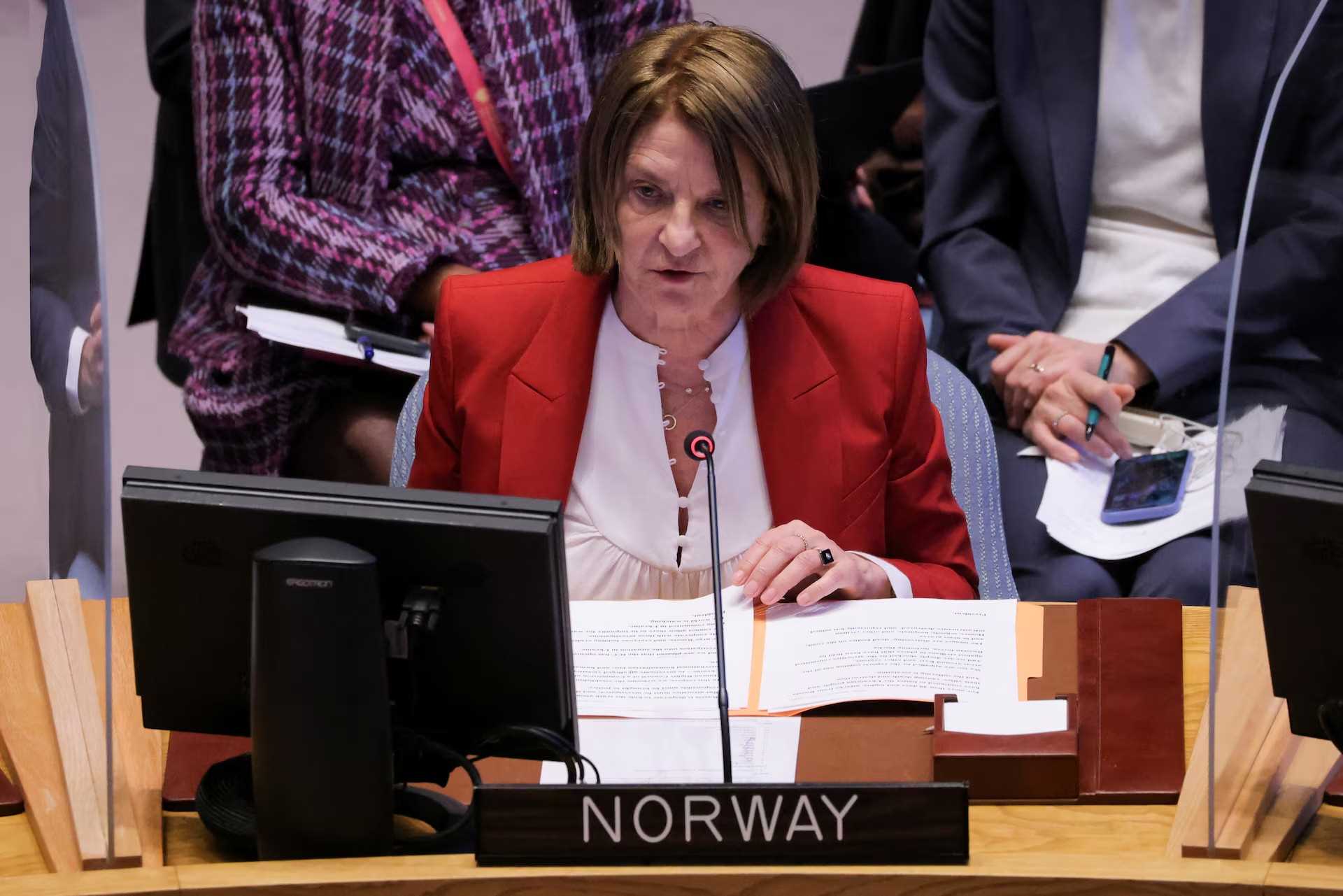
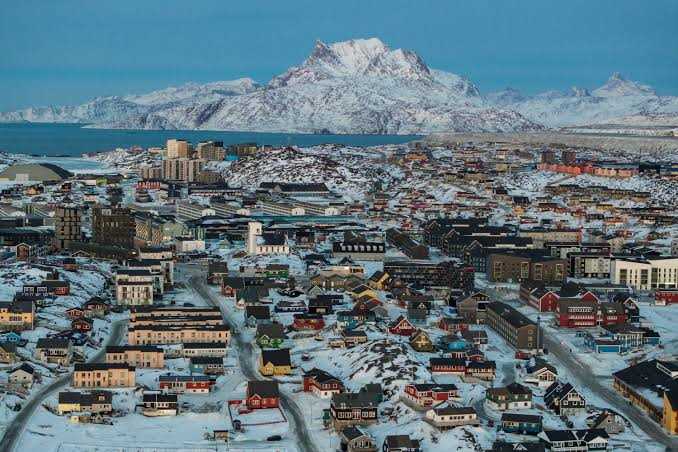

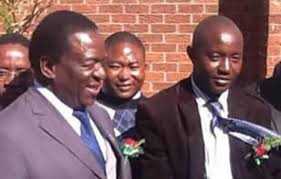
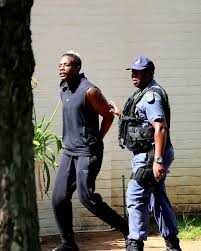

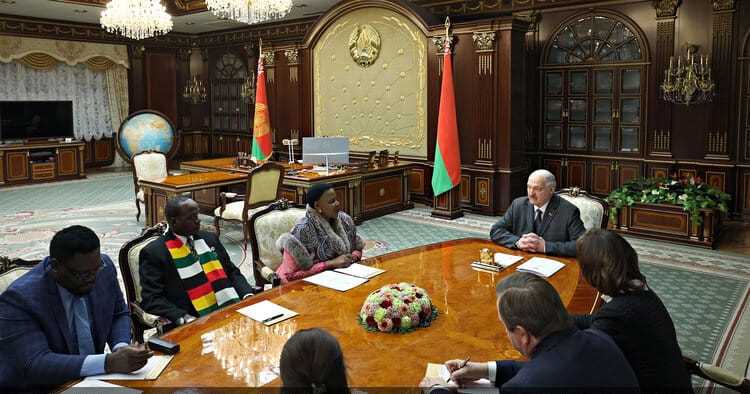


Leave Comments